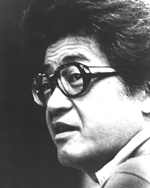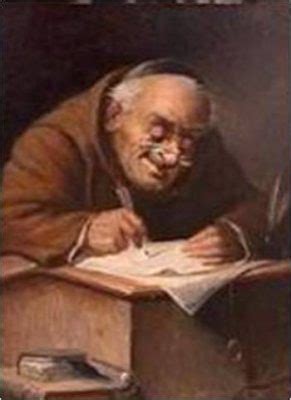A Quote by Saint Augustine
We enjoy some gratification when our good friends die; for though their death leaves us in sorrow, we have the consolatory assurance that they are beyond the ills by which in this life even the best of people are broken down or corrupted.
Related Quotes
If to enjoy even an enjoyable present we must have the assurance of a happy future, we are “crying for the moon.” We have no such assurance. The best predictions are still matters of probability rather than certainty, and to the best of our knowledge every one of us is going to suffer and die. If, then, we cannot live happily without an assured future, we are certainly not adapted to living in a finite world where, despite the best plans, accidents will happen, and where death comes at the end.
If we desire to end our days in joy and comfort, let us lay the foundation of a comfortable death now betimes. To die well is not a thing of that light moment as some imagine: it is no easy matter. But to die well is a matter of every day. Let us daily do some good that may help us at the time of our death. Every day by repentance pull out the sting of some sin,that so when death comes, we may have nothing to do but to die. To die well is the action of the whole life.
We are left with nothing but death, the irreducible fact of our own mortality. Death after a long illness we can accept with resignation. Even accidental death we can ascribe to fate. But for a man to die of no apparent cause, for a man to die simply because he is a man, brings us so close to the invisible boundary between life and death that we no longer know which side we are on. Life becomes death, and it is as if this death has owned this life all along. Death without warning. Which is to say: life stops. And it can stop at any moment.
Switch on the television or glance at the newspaper: You will see death everywhere. Yet, did the victims of those plane crashes and car accidents expect to die? They took life for granted, as we do. How often do we hear stories of people whom we know, or even friends, who died unexpectedly? We don't even have to be ill to die: Our bodies can suddenly break down and go out of order, just like our cars. We can be quite well one day, then fall sick and die the next.
The only things in which we can be said to have any property are our actions. Our thoughts may be bad, yet produce no poison; they may be good, yet produce no fruit. Our riches may be taken away by misfortune, our reputation by malice, our spirits by calamity, our health by disease, our friends by death. But our actions must follow us beyond the grave; with respect to them alone, we cannot say that we shall carry nothing with us when we die, neither that we shall go naked out of the world.
I don't know what is the meaning of death, but I am not afraid to die - and I go on, non-stop, going forward with life. Even though I, Bruce Lee, may die some day without fulfilling all of my ambitions, I will have no regrets. I did what I wanted to do and what I've done, I've done with sincerity and to the best of my ability. You can't expect much more from life.
I'm sad. Pressed down by sorrow. I'm angry. Pissed at God, if there is one, and the way things are. I'm scared. Confused by the whys. Why are we here? Is there, really, some intelligent design? Why do we cry for someone who leaves us if there's some Grand Pearly Gate in the sky? Why worry about how we build our lives if the ultimate ending for all is death, a single breath away? (358)
Assurance grows by repeated conflict, by our repeated experimental proof of the Lord's power and goodness to save; when we have been brought very low and helped, sorely wounded and healed, cast down and raised again, have given up all hope, and been suddenly snatched from danger, and placed in safety; and when these things have been repeated to us and in us a thousand times over, we begin to learn to trust simply to the word and power of God, beyond and against appearances: and this trust, when habitual and strong, bears the name of assurance; for even assurance has degrees.
So to be sick unto death is, not to be able to die-yet not as though there were hope of life; no, the hopelessness in this case is that even the last hope, death, is not available. When death is the greatest danger, one hopes for life; but when one becomes acquainted with an even more dreadful danger, one hopes for death. So when the danger is so great that death has become one's hope, despair is the disconsolateness of not being able to die.
Suicide is an escape from life. What is life? An escape from death. This means that each of us must die twice. There is the death waiting for us ahead, and the death that comes pursuing from behind.... Once you are free at least from the death that comes pursuing you, you can relax and enjoy life as you go along.
Our minds tell us, and history confirms, that the great threat to freedom is the concentration of power. Government is necessary to preserve our freedom, it is an instrument through which we can exercise our freedom; yet by concentrating power in political hands, it is also a threat to freedom. Even though the men who wield this power initially be of good will and even though they be not corrupted by the power they exercise, the power will both attract and form men of a different stamp.
It is abundantly evident that, however natural it may be for us to feel sorrow at the death of our relatives, that sorrow is an error and an evil, and we ought to overcome it. There is no need to sorrow for them, for they have passed into a far wider and happier life. If we sorrow for our own fancied separation from them, we are in the first place weeping over an illusion, for in truth they are not separated from us; and secondly, we are acting selfishly, because we are thinking more of our own apparent loss than of their great and real gain.









































